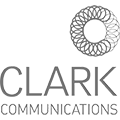Preparing for Media Interviews
Preparing for Media Interviews
Although it can be daunting to have a reporter (or two) hanging on every word, pencil poised, media interviews can be one of the most effective tools in your public relations campaign if they’re handled properly. Whether you will be giving the interview yourself, or more likely prepping a company spokesperson, following are some ways to make sure you have a successful media interview.
Before the Interview
Poll. Try to find out what the reporter wants to know in advance, what their bias may be, and anyone else the reporter will be interviewing. This will help you frame your responses. How do you find out? Ask, and read previous articles the reporter has written on the subject
Prepare. Prepare for the interview by developing a rude Q&A of all the difficult or potentially sticky questions a reporter may ask, and determine how your spokesperson will answer them in a positive way. Don’t distribute this form! It is for spokesperson coaching only. Have on hand company fact sheets and backgrounders.
Research. Thoroughly research your subject and know the strengths and weaknesses of your product or service in comparison to those of your competitors. (Never mention the competition in an interview, but if questioned, you’ll want to know how your companys offerings differ.) If you’re uncertain about key facts or figures, look them up.
Verify. Prior to the interview, make a quick phone call to the reporter to verify the meeting, and offer to fax directions to your office if the reporter will be meeting you at your site. These additional steps can save you both from an embarrassing situation that might start your relationship off on the wrong foot.
Simplify. Hone your messages to a few key points. Very little of what your company spokesperson says will be used, so make sure your comments will be targeted by creating a simplified, quotable version of your key message. (If you don’t create a message that can be conveyed in a few words, a reporter will come up with one of their own, and it may not meet your needs.)
At the Interview
Watch casual remarks. Make sure your spokesperson understands that nothing is off the record, even if your spokesperson says it is. Your spokesperson should never say anything he or she wouldn’t want to be quoted on to a reporter because those are usually just the juicy tidbits that will end up in print.
Answer every question. Never use the phrase “no comment.” You must answer every question or you will seem evasive. If there is a legitimate reason for not answering a question, simply state that you cannot answer it and give the reason.
Flag key points. When you’re speaking, use “flags” to signal key points. Let the reporter know youre about to make a main point by flagging it with a phrase such as, “the key point is …” or “the important thing to remember is …” This helps ensure that reporters won’t miss your key points while making notes about something less important you just said.
Use bridges to take control of the interview. If a reporter asks you a potentially sticky question, answer it, but bridge it to a message you want to convey. “Yes, but have you considered …” or “No, but we’ve solved that problem through …”
Use metaphors. Use metaphors, stories and anecdotes to illustrate and simplify your points. These give the reporters something to hang their hats on and make for good copy (or good sound bytes if you’re dealing with the broadcast media). If your company has significantly improved chip technology equivalent to fitting data that would fill a football field onto the head of a pin, say so.
Avoid jargon. When speaking with reporters or the lay public, avoid the use of industry jargon and acronyms. Your mission is to convey information. If your listeners have to decipher industry-speak, you’ll momentarily lose their attention and they may miss a key message.
Be interesting. If you are passionate about your subject, it will help make a better story. Remember that the reporter is the pipeline to your audience. Help the reporter tell the best story possible.
Be ready to go off-topic. During the interview, don’t be surprised if a reporter asks something totally unrelated to the subject at hand, but still involving your industry. They don’t do this to trip you up but merely because they cover your industry and are interested in everything related to it. They may also be working on their next story. Make sure your spokesperson is ready to answer any question on your industry. If a reporter asks something your spokesperson can’t answer immediately, say you’ll get back to him or her later, and do so promptly.
After the Interview
Follow up. After the interview, send a note of thanks to the reporter. In it, reiterate any points you want to make clear. Ask the reporter if the interview provided him/her with enough information, and offer to assist further. The reporter may not respond before the article is printed, but will appreciate being asked, and it will open the door for follow-on articles.
This article reprinted with permission from Yvonne Meacham Buchanan, www.careers-in-public-relations.com.
